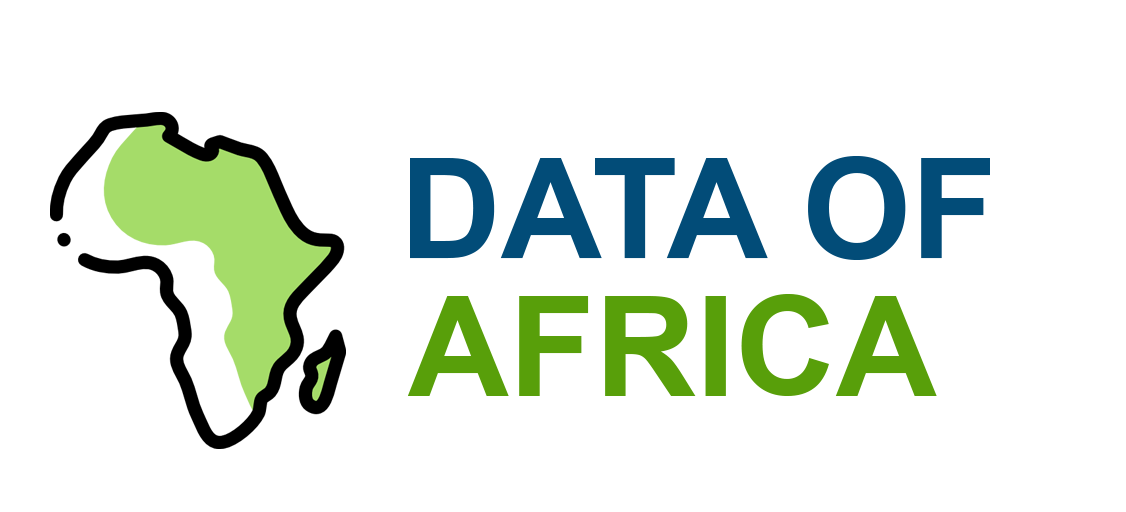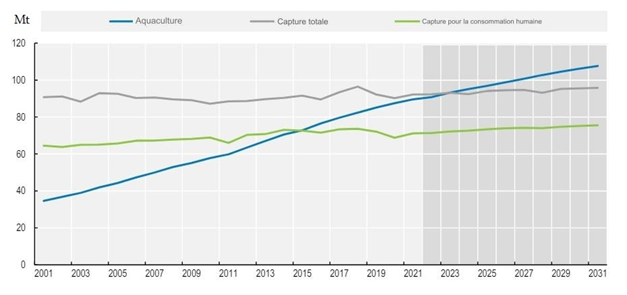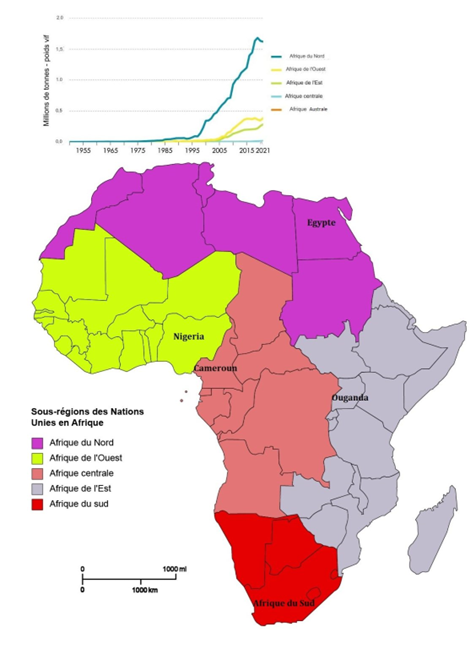Africa is the second continent, far behind Asia, in terms of the number of fishing vessels, but this fleet is the least motorized on the planet, with only 1/3 of the boats having an engine. The continent therefore places only one country, Morocco, in 17th place worldwide out of the 25 countries representing 82% of world fishing.
On the part of Africans, this is subsistence and artisanal fishing employing many workers; in 2014, there were 5.7 million fishermen and fish farmers in Africa, and “fish provides a livelihood for some 30 to 45 million Africans.”
This sector, however, shows weak performance. The per capita fish supply in Africa is only 9.8 kg per year, making it the second lowest in the world, compared to the global average of 19.7 kg. Fish processing also faces significant challenges, with post-capture losses estimated between 20–25% and, in some cases, reaching up to 50%. Inland fishing remains largely unindustrialized, except in parts of East Africa’s Great Lakes region (Lake Victoria, Lake Tanganyika, and Lake Malawi). Like sea fishing, inland fisheries are experiencing declining catches due to pollution, environmental degradation, and overexploitation. Aquaculture production is also the lowest in the world, with North Africa being the most productive region at just over 5 kg per person, while other African sub-regions produce less than 1 kg per person.
Aquaculture, total capture production, and capture for human consumption (Source OECD/FAO (2022)
Sea fishing is industrialized, but much of the exploitation is driven by European and Chinese companies, which tend to deplete resources. Most fish catch now comes from the exclusive economic zones of coastal countries such as Angola, Namibia, and South Africa, while high-seas fishing has significantly declined. Beyond industrial overfishing, illegal fishing also poses a major challenge, leading to significant economic losses for African nations.
Fishing contributes to Africa’s positive trade balance, as the continent has generally been a net exporter in terms of value since 1985. However, in terms of volume, it has long been a net importer, reflecting the lower unit value of imported species, particularly small pelagic fish.
Fish is crucial to the continent’s food security, accounting for 22% of animal protein intake in sub-Saharan Africa, and up to 50% in areas where other protein sources are scarce or expensive. In coastal West Africa, the proportion of animal protein coming from fish is particularly high, with countries like Senegal, Gambia, Sierra Leone, and Ghana relying heavily on fish for nutrition.
Inland Africa also depends on inland fisheries, which provide essential food and livelihoods for communities near rivers and wetlands. Even more surprisingly, fish plays a key role in the diets of communities in the continent’s drylands.
According to OECD (2023), in order to ensure food security, global fish production is projected to increase by 1.2% per year and is expected to reach 203 Mt by 2031, an overall increase of 25 Mt (+14%) compared to the base period (average 2019-2021), and by 2031, global aquaculture production is projected to reach 108 Mt, 12 Mt more than the capture sector. Aquaculture in total fish supply will reach 53% in 2031 compared to 49% in the 2020 period.
Fisheries catches increased from 7 million tonnes to 10 million tonnes in 2020, while aquaculture production was around 450,000 tonnes in 2000, increasing to almost 2 million 420,000 tonnes in 2020 (FAO, 2024).
The 2.4 million tonnes of African aquaculture products are not evenly distributed across the continent. For decades, there have been large disparities in aquaculture production, with significant growth in North, West, and East Africa since the 2000s (Fig. 5). Of the total 2.4 million tonnes, North Africa accounts for nearly 70% (almost all produced by Egypt), West Africa produces 16.06%, and East Africa contributes 15.70%. Central and Southern Africa produce less than 1.3% (FAO, 2024).
For more information :
- https://fr.wikipedia.org/wiki/Portail:Afrique
- https://en.wikipedia.org/wiki/Africa
- https://africacenter.org/
- https://journals.openedition.org/etudesafricaines/
- https://etudes-africaines.cnrs.fr/
- https://journals.openedition.org/etudesafricaines/
- https://www.afdb.org/fr/documents-publications/economic-perspectives-en-afrique-2024


